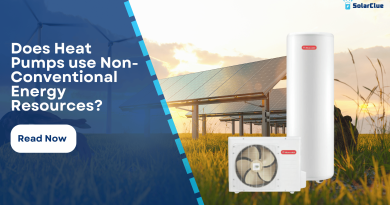What are the ways to reduce air pollution in India?
Air pollution is a major environmental concern in India, with harmful effects on human health and the planet. We must all know the ways to reduce air pollution. We must individually contribute towards reducing air pollution in India. For that, we must make small changes in our daily lives, like the appliances we use.
In this blog, we will discuss in detail about air pollution, and how we as individuals can contribute towards the prevention of air pollution in India.
Table of Contents
What do you mean by air pollution?
Air pollution refers to the presence of harmful substances in the air. This include substances such as particulate matter, nitrogen oxides, sulfur dioxide, and carbon monoxide. These pollutants can have severe consequences for human health. Health problems like respiratory problems, cardiovascular diseases, and even premature death can occur. Additionally, air pollution negatively impacts the environment, contributing to global warming, acid rain, and the depletion of the ozone layer.
How does air get polluted?
Air pollution can arise from various sources, including:
- Vehicular emissions: The burning of gasoline and diesel fuels in vehicles releases harmful pollutants like nitrogen oxides, carbon monoxide, and particulate matter into the air.
- Industrial activities: Many industrial processes, such as manufacturing, mining, and construction, emit pollutants like sulfur dioxide, nitrogen oxides, and particulate matter, contributing to air pollution.
- Burning of fossil fuels for electricity generation: Power plants that burn fossil fuels like coal and natural gas release large amounts of pollutants, including carbon dioxide, sulfur dioxide, and nitrogen oxides, into the atmosphere.
- Agricultural practices: Certain agricultural activities, such as the use of fertilizers, pesticides, and the burning of crop residues, can release ammonia, methane, and particulate matter into the air.
- Construction and demolition activities: These activities can generate significant amounts of dust and particulate matter, which can contribute to air pollution, especially in urban areas.
How can air pollution be reduced?
To prevent air pollution, it requires major steps to be taken. This can be done by Governments through new policies and strategies. But what about for individuals? You can also contribute towards reduction of air pollution for a better future.
Most appliances used in Indian households consume a lot of electricity to operate. This electricity is produced by burning fossil fuels, which cause air pollution. We must replace such devices by alternatives which consume less electricity. This will lead to a reduction in air pollution. This is how you can contribute towards prevention of air pollution.
For example, in most households, geyser is installed to meet the daily hot water needs. But it consumes lot of electricity. To avoid this, you can replace it with a heat pump. It consumes only 25% of the energy used by any traditional water heater. So it is environment friendly. It reduces air pollution.

What is a heat pump water heater, and how does it work?
A heat pump water heater is an energy-efficient device that utilizes a refrigerant cycle to transfer heat from the surrounding air to water, effectively heating it. The system comprises three main components:
- Exhaust fan: This fan draws in air from the surrounding environment.
- Compressor: The compressor pressurizes the refrigerant, causing it to heat up.
- Storage tank: The heated refrigerant then passes through a heat exchanger, transferring its heat to the water stored in the tank.
This process consumes significantly less electricity than traditional water heaters, making heat pump water heaters a more energy-efficient and cost-effective solution in the long run.
By utilizing the ambient air as a heat source, heat pump water heaters consume up to 75% less electricity than conventional water heaters. This reduced electricity consumption directly translates into lower greenhouse gas emissions from power plants, contributing to a cleaner environment and reduced air pollution.
So, investing in a heat pump is one of best ways to reduce air pollution.
What are the other benefits of a heat pump system?
Apart from their environmental benefits, heat pump water heaters offer several advantages:
1. Cost-effective
Heat pump water heaters are highly cost-effective in the long run. While the initial purchase cost may be higher than traditional water heaters, the significant reduction in electricity consumption translates into substantial savings on utility bills over the system’s lifespan. Heat pumps can save up to 75% on energy costs compared to conventional electric water heaters, resulting in significant cost savings for households.
2. Long lifespan
Heat pump water heaters are designed to last longer than traditional water heaters. With proper maintenance, they can have a lifespan of 10-15 years, compared to 8-12 years for conventional water heaters. This extended lifespan not only reduces the frequency of replacements but also contributes to overall cost savings.
3. Reduced water wastage
Traditional water heaters continuously heat and re-heat the stored water, even when it’s not being used, leading to significant energy and water wastage. Heat pump water heaters, on the other hand, are equipped with advanced insulation and intelligent controls that minimize standby heat losses. This ensures that hot water is available when needed without unnecessary energy consumption or water wastage.
4. Positive environmental impact
By consuming significantly less electricity, heat pump water heaters reduce the demand for electricity generated from fossil fuels, thereby lowering greenhouse gas emissions and the overall carbon footprint. This positive environmental impact contributes to mitigating climate change and promoting a more sustainable future.
5. Efficient in cold climates
Advanced heat pump technology has made these systems highly efficient even in colder regions. Unlike traditional heat pumps, which may struggle in low temperatures, modern heat pump water heaters are designed to operate effectively in a wide range of climatic conditions, including cold environments. This makes them a viable and energy-efficient option for households in various climatic zones.
Conclusion
Air pollution is a pressing issue in India. We all have to contribute to reduce its effects. By embracing energy-efficient solutions like heat pumps, we can reduce our electricity consumption, contributing to a cleaner and healthier environment. So knowing ways to reduce air pollution is step towards a sustainable future. And replacing your home appliances with energy-efficient ones, like a heat pump system, is definitely one of the best ways to reduce air pollution.
Reducing air pollution will not only be beneficial for a better future, but also benefit in reducing health problem risks. So we should all take the responsibility towards preventing air pollution.
Visit SolarClue® to see the best heat pump water heaters. SolarClue® is an online marketplace where solar energy products are sold at discounts up to 50%.




